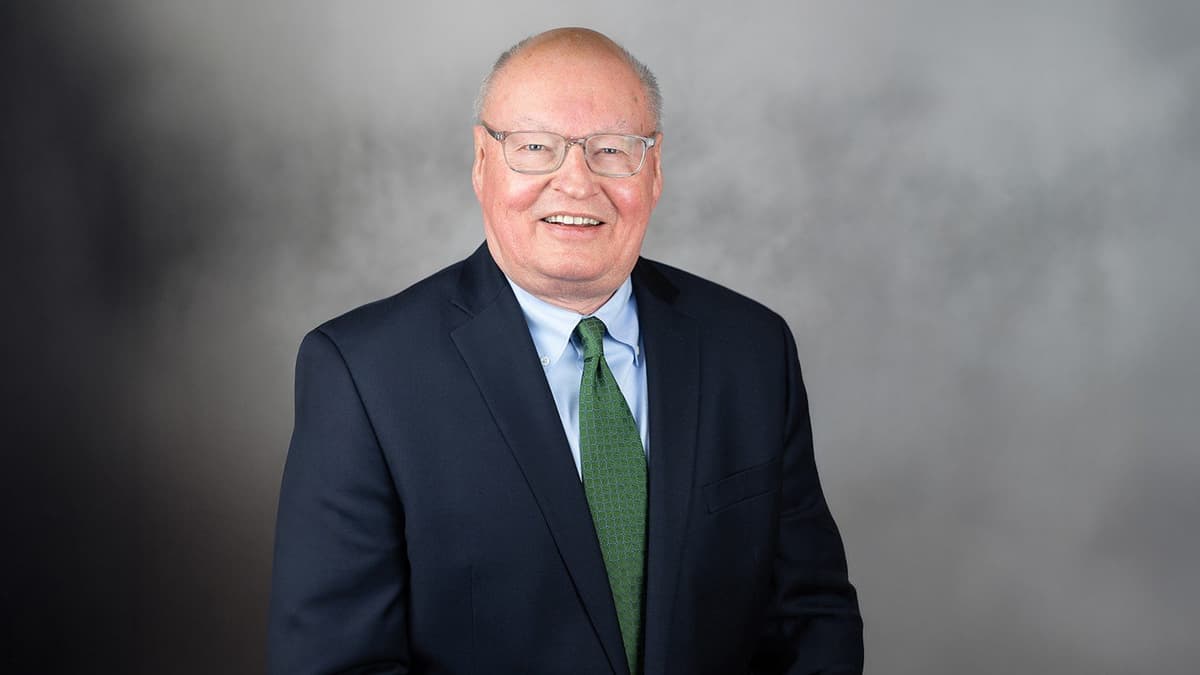Marilyn and I got married in 1978. We spent part of our honeymoon in a hotel named after a famous theologian, Roger Williams. This was not due to some weirdly unromantic nuptial planning on our part but to our professional obligations. The Roger Williams Inn is located on the grounds of a Christian conference center in Green Lake, Wisconsin. That year, the United Methodists of Wisconsin held their annual meeting there. The meeting took place a week after our wedding, and, as clergy delegates, Marilyn and I had to attend, honeymoon notwithstanding.
Roger Williams was a 17th-century American Puritan theologian who believed in the complete separation of church and state. This position put him at odds with many of his contemporaries. It wasn’t that he wanted to protect civil society from domination by the church. That concern would evolve in American society later. His concern was just the reverse: He wanted to protect the church’s purity from the encroachments of civil society.
Williams was a perfectionist. He eventually concluded that a truly pure church on earth would only exist when Christ himself returned to establish it. Williams thought achieving moral and spiritual perfection was the proper goal of the church, but Christians are too sinful to achieve it on their own, so he gave up on organized religion altogether. For the last forty years of his life, he prayed only with his wife.
I didn’t spend much time thinking about Roger Williams during my honeymoon. But I thought a lot about him after I joined the SPU faculty because Williams’ perfectionist legacy lives on at this Wesleyan Holiness institution but in a drastically modified form. Like Williams, our founders agreed that achieving moral and spiritual perfection was the proper goal of the church. Unlike Williams, they insisted its relentless pursuit was the very point of Christian discipleship.
Holiness folk believe the Holy Spirit empowers Christians to grow steadily toward “Christian perfection” — that is, self-disinterested love to God and neighbor — and, Christians should strive together to attain it in this life. Instead of giving up on institutional Christianity, Holiness folks founded their churches and their schools to promote that striving.
For many years, I taught this in my “Christianity in America” course. Three years ago, it took on new relevance, as debates about the identity and mission of SPU erupted on campus. I won’t speak directly to the issues that have captured all the attention. Rather, I want to look at the deeper issue of institutional perfectionism. This perfectionism underlies and animates all the other issues but it received no airtime during the debates.
At a Wesleyan-Holiness university like ours, institutional perfectionism means having a reasonably clear vision of what Christian perfection entails. This vision includes doctrinal convictions, ethical values, and educational objectives. The school’s leaders — trustees, administrators, faculty, and staff — agree to embrace this vision, at least in its general outlines, and seek to articulate it in the school’s governance policies and implement it in the school’s curriculum and co-curricular programs.
Institutional perfectionism does not mean the school’s leaders, as individuals, must attain Christian perfection as a condition of employment. It only means they must strive for it in their personal and professional life. Nor does institutional perfectionism mean its leaders must agree on all the specifics of what Christian perfection means for the school, but only that they must agree to debate the specifics relentlessly and respectfully.
But there’s the rub. Where do the general outlines of Christian perfection end and the specifics begin? How much dissent is permissible on the specifics? Who disciplines those whose dissent goes too far? How far short of Christian perfection could an individual member of the university community fall without getting fired? How far short of Christian perfection could the institution at large fall without losing its credibility to the wider public, and without losing the moral legitimacy that makes working here an honor for its employees and studying here a blessing for its students? When is falling short of Christian perfection, either by the institution or by its individual members, accepted as a forgivable human weakness, and when does it become outright hypocrisy?
The only surefire way for any individual or institution to avoid the charge of hypocrisy is to renounce the very ideals that he/she/it might be accused of falling short of. But renouncing aspirational ideals to avoid falling short of them is to not have ideals at all — no identity, no purpose or reason for being. Wesleyan-Holiness folks, and institutions with a Wesleyan-Holiness ethos like SPU, always dwell in the messy middle, striving toward goals they proudly affirm but never fully achieve.
Yet, the messy middle is precisely where Holiness folks belong! It is precisely our perpetual need to debate these complex questions and lofty goals that sharpen our critical and self-critical thinking skills, rescue us from self-complacency and institutional comfortableness, and cultivate in us such basic Christian virtues as patience with difficult neighbors and forgiveness of those who offend us by word or deed.
It is our endless quest for moral and spiritual perfection that renders a church or school like SPU worthy of allegiance, even if our goals are perpetually beyond reach and our efforts toward them are sometimes wearisome and frustrating. To claim to have attained our goals is delusional. To regard their attainment as a fanciful pipe dream is self-defeating. But to keep moving together toward our goals — and never more truly together than when fiercely but lovingly debating on how to get there — is precisely how to stay on course.
Richard B. Steele is professor emeritus of Moral and Historical Theology at SPU.




